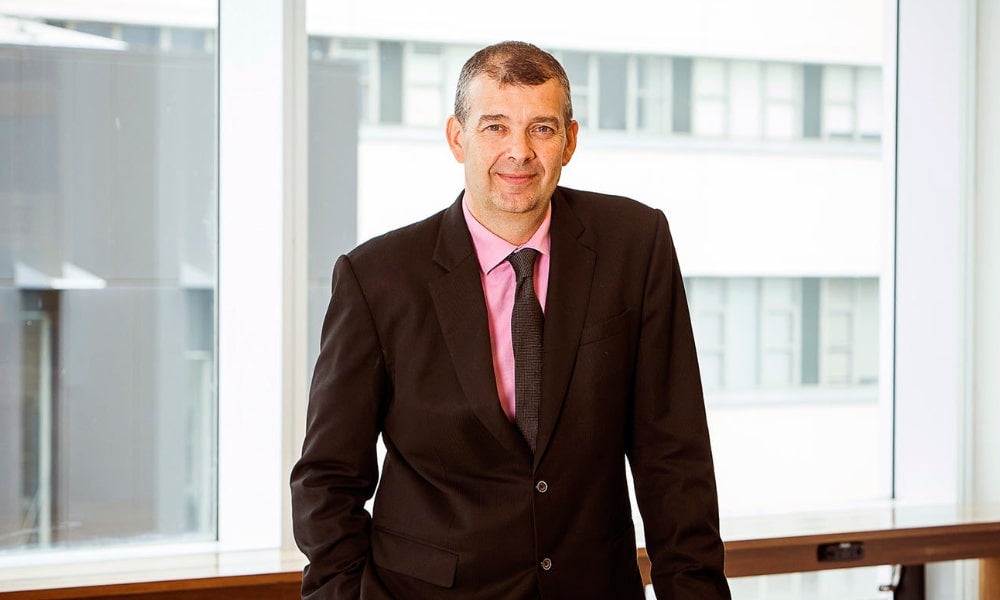Amy Cuddy on the science of leading with power and presence
Amy Cuddy explains how leaders can project confidence, connect with teams, cultivate trust, foster diversity and navigate challenging times effectively
Amy Cuddy is a social psychologist, former Professor at Harvard Business School and bestselling author of Presence: Bringing Your Boldest Self to Your Biggest Challenges. Chris Jackson, Professor in the School of Management & Governance at UNSW Business School, spoke with Ms Cuddy regarding her presentation at the recent World Business Forum Sydney about the importance of leading with trust, empowering people to perform at their highest potential, and how to improve diversity, equity and inclusion outcomes in the workplace.
Professor Jackson: What is one important way leaders can empower people to perform at their highest potential?
Ms Cuddy: The most important thing is to lead with trust, and what I mean by that is to assume that the people in your team are there for the right reasons. What do they want to do? Well, they want to create value and they are there with good intentions because if you give them that trust, you get that back. Instead of leading with trust, they often want to lead with strength, competence and knowledge, or want to make it clear that they are smart or in control of things – but in doing so they neglect to build relationships with people.
Professor Jackson: What about leading others who have abused that trust? Have you ever come across that kind of situation, and what would you do in it?
Ms Cuddy: Yes, but I guess I would rather make that error than the opposite error, which is to go in not trusting people who are trustworthy. So yes, there are going to be times when it doesn't work with individual people. But I want to be clear that I'm not saying ‘trust that they know everything’ but trust that they're there to do well. Sometimes people are not trustworthy. I would say the kinds of violations that you would be most concerned about aren't necessarily competence violations, but trust violations. If someone demonstrates that they're not trustworthy, then an honest conversation about what has happened is needed, and if you need to let them go, you let them go. I do think it's important to establish with other people that you’re leading, that there are boundaries, and that when people violate trust, they don't get to stick around. Or, you might be very clear about one second chance. It's up to the leader, but there has to be consistency about how that's managed.

Professor Jackson: It's easy to think that trust works when times are good, but when times are bad, people might be stressed with high levels of uncertainty. Does trust still work then?
Ms Cuddy: I started thinking and writing about this during the pandemic. During a large-scale crisis, there are three phases. The emergency phase is the first phase, when teams are thriving, the threat is clear, everyone's on the same page, adrenaline is pumping, and good leaders operate at their best.
After that comes the regression phase, where people start to withdraw, get depressed and anxious, lose their sense of purpose, and threats and objectives are less clear. And the third phase is about rebuilding. This is where leaders can play a really important role in listening. They understand that people are having mental health challenges, and they might be feeling anxious or depressed. To bring them back together again, they really have to allow them to share their experiences, and to be more tolerant of behaviour that maybe they're not used to – so they might be acting more agitated than normal. At the same time, leaders need to adopt a flux mindset, so they don't deplete all the surge capacity that gets them through that emergency phase. There have been so many shifts over the past few years and so much uncertainty, and to be honest, I don't think that we're ever going back so trust is more important than ever, right now.
Read more: Our vision of leadership is 2000 years past its use-by date
Professor Jackson: Many people might say that women can perform extraordinarily well as leaders in such times. What would be your observation on that?
Ms Cuddy: I'm reluctant to say that there are huge differences in how women and men lead, as I believe that behaviours are more learned than innate. That said, they are learned. And, I would say women leaders have generally learned to be better listeners and they have cultivated empathy. It's been encouraged in some ways that are, I think, limiting to women because they have to care about everyone, but in other ways, I think it allows them to connect better with people in a time when they are regressing, which is a developmental term for when people withdraw into a childlike state. So when I look at who has been doing well in terms of people that I've worked with, I do think women leaders have done better than male leaders on average. I've talked to male leaders who feel just frustrated with people and unable to get beyond that to understand what is going on. But to be fair to everyone, we have all been through the pandemic and we have had to juggle many balls all at once, with working from home, schooling kids from home and managing everything in between.
Professor Jackson: You're quite well known for your work on presence, and the way in which non-verbal tactics work in terms of leadership. How does that work, and how can that actually help to perform with greater confidence?
Ms Cuddy: I often ask people to think about 'what is the workplace challenge or interpersonal situation that they most dread, or that they execute with a sense of anxiety and distraction, or they experience a sense of regret over?' This varies greatly across people. For some people, it's public speaking or pitching an idea, and for other people, it is giving negative feedback and especially giving negative feedback to clients. My question to people in such scenarios is, how can you be more present in those challenging situations?
The reason I think the embodiment work is so interesting is that it is a bit of a hack, to work around the fight, flee or faint response that a lot of us feel before these situations, which many can't overcome with self-talk. One of the most important things you can do is to prepare yourself and your content as much as possible.
Read more: How demonstrating vulnerability can improve diversity & inclusion
I would say the most important thing is to breathe. One of my favourite breathing techniques that seems to really work in these situations, is called four, six, seven breathing. So inhale for four counts, hold for six, and exhale for seven counts. They don't have to be full seconds, but equal interval counts. Do that at least three times, and it has an incredibly powerful effect on how calm you feel, especially before a stressful event.
It also helps to think about the physical state and posture and the way we're carrying ourselves, as this will change the way we feel. Don’t slouch, sit or stand up straight, because adopting big expansive postures changes the way people feel. It actually makes us more creative, and cognitively agile.
Another important consideration is vocal range, whether we speak with a high voice or low voice, as well as how quickly or slowly we speak. When we speak quickly, people see us as less powerful, but it also makes us feel less powerful. So when we slow our speech, it makes us feel more powerful. If you’re in a situation where you're starting to feel anxious, slow your speech, or just pause. Pausing is so powerful.

Professor Jackson: It seems that life is getting more stressful and people are getting more anxious in the workplace than those in society more generally. Why is that the case?
Ms Cuddy: I do think conversations to address this in the workplace are happening. If you look at Harvard Business Review over the past couple of years, there have been a lot of articles on mental health in the workplace and how important it is for us to pay attention to that. I don't know how well the implementation is going with those, but I do think we're turning a bit of a corner. We seem to be much more open to talking about our worries and fears. And we're expecting the workplace to respond to that openness in a way that it hasn’t done in the past. I do think we are being more open about how work makes us feel, we're talking about it more, and also acknowledging the importance of it.
If you look at the great resignation in the US, the top reason people cited in many surveys for leaving their jobs was that they were in a toxic workplace. While this has been a problem for a while, people are saying they’re not putting up with this anymore. People are starting to say, ‘I don't want to live like that.’ Young people especially, people in their 20s, are coming into professional positions and they are really not tolerant of expectations that will cause stress, such as responding to email on the weekend, working crazy numbers of hours, or abusive communication. They're much more likely to say, ‘That's not okay.’ So I do you think a shift is happening.
Subscribe to BusinessThink for the latest research, analysis and insights from UNSW Business School
Professor Jackson: It's always interesting to talk about prejudice and bias in the workplace. It’s clear we've made some progress, but there's a lot more to be made. Would you say modern businesses are failing to address these issues? And in what ways can they do better?
Ms Cuddy: In the US, certainly, you see a lot of attention on diversity, equity and inclusion. People are running these DEI programs, but it's not clear to me that they're doing it well, or that there's a real genuine commitment to it. So I think one of the most important things for leaders, if they truly care about this, is that they should clearly model how important it is to them through their own actions. There has to be consistency in this, and it can't be a one-time program or a checkbox exercise. I would love to see leaders really getting behind DEI and making a long-term commitment that will change the culture around this from the inside out. I do think that we're making progress, and this next generation that is coming in, actually understands it better. They understand prejudice better, and they understand why DEI is valuable, so we will see more progress there as they come through the workforce.
The World Business Forum was held at the ICC Sydney Sydney from 11 to 12 October 2023. UNSW Business School was an academic partner for The World Business Forum in Sydney.
